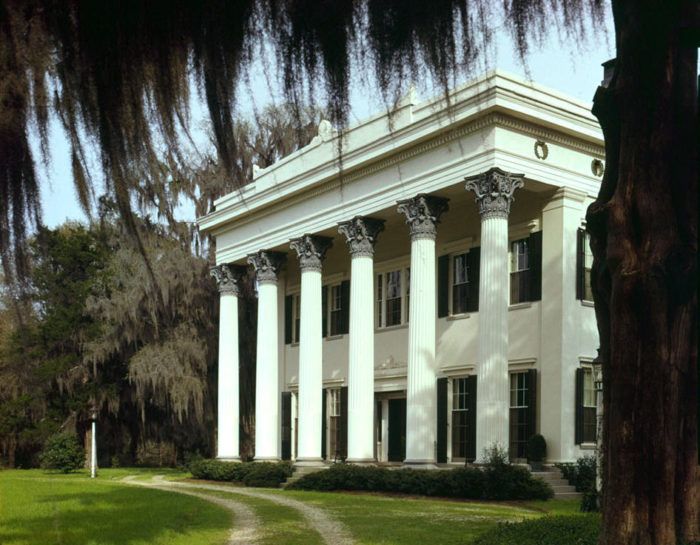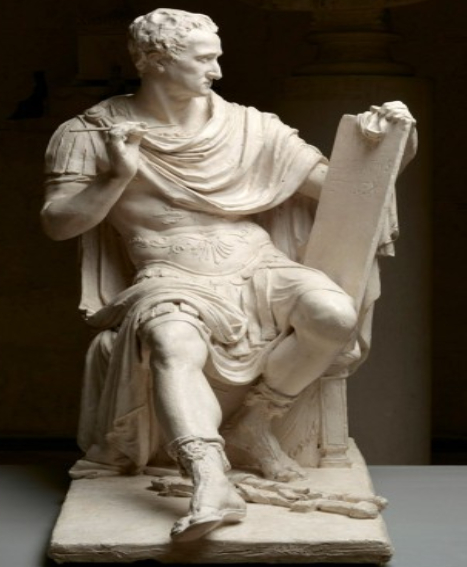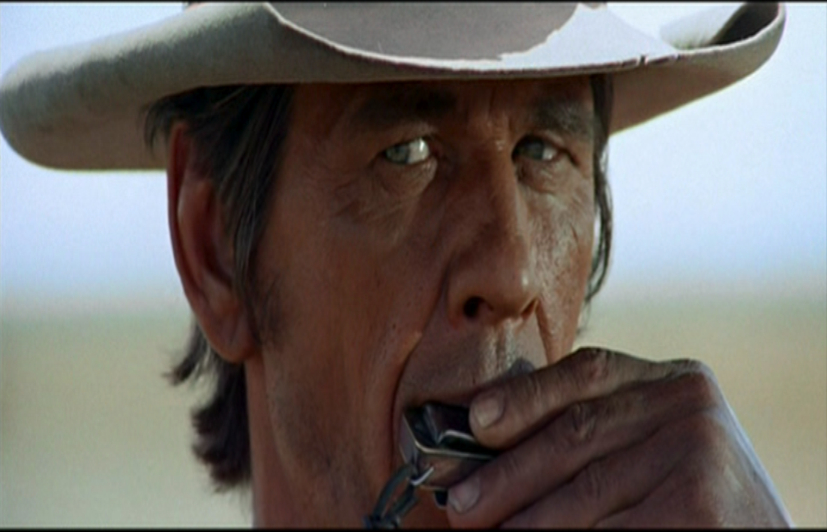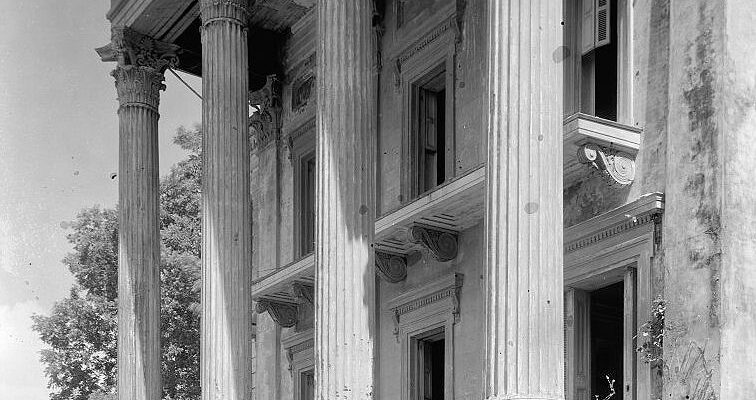Something that is well known to historians that study Dixie, but almost completely unknown to the general population, is the extent antebellum Southerners were enthralled with the civilizations of classical antiquity – namely, ancient Greece and Rome. Indeed, Dixians during this time period saw their civilization as the inheritor of the glories of both civilizations and sought to imitate them in many critical areas. As common as it is for Yankees to view the South as a cultural backwater, antebellum Southerners were fiercely proud of their civilization. And, they considered the South as the continuation of some of the greatest civilizations the world has ever known. The antebellum South strongly believed in classical republican virtues, which was in stark contrast to the materialistic Yankee, a civilization built on egalitarianism, commerce, and a fanatical belief in remaking the world in their own image. The purpose of this essay will be to showcase how the influence of Greco-Roman civilization can be identified in several aspects of Dixian culture.
Architecture
Perhaps the most common example of the classical influence on Dixie, even if most people do not realize it, is our architecture. An easy visual is the stereotypical Southern plantation, particularly, the white columns. There is a very good reason why those columns are so commonplace across the South – they were meant to harken back to a similar design on classical architecture. Yes, the use of white columns can be seen in both the architecture of classical civilization and antebellum Dixie. Southerners were consciously using this style of architecture – from Stratford Hall’s austere Georgian architecture to Nottoway Plantation’s grand Greek Revival. This is particularly true of the Southern upper-class, who considered themselves as being akin to the Roman patrician class, and wanted a visual reminder in their homes of their duties and responsibilities.

Names
The influence of classical civilization on Dixie can also be recognized in Southern names. People were often given Roman names, as this was used as a homage to their parent civilization. Again, this is in some ways hiding in plain sight. Think back to the first line in The Band’s “The Night They Drove Old Dixie Down”: “Virgil Caine is the name…” “Virgil,” of course, is the name of a famous Roman poet. And, this is no mere example of a coincidence. Though I doubt The Band was all that familiar with the classical influence on Dixie, a quick look at the historical record will reveal that “Virgil” was a common name. However, it goes beyond the once common name of a Roman poet. Lucius Quinctius Cincinnatus is one of the greatest statesmen in Roman history, and in honor of him there was Lucius Quintus Cincinnatus Lamar of Georgia and his son Lucius Quintus Cincinnatus Lamar II of Mississippi. Though not as common as “Virgil,” the names “Lucius,” “Quintus,” and “Cincinnatus” all enjoyed some popularity in Dixie. Southerners viewed their civilization as indebted to Rome and named their children accordingly.
Ideology
The most powerful classical influence on the South is our ideology. Dixians, especially the upper-class, considered themselves as continuing the classical republican virtues of Rome – one that elevated a hierarchical culture and built on values such as duty, courage, honor, perseverance, and sacrifice. It was understood that the world was built on hierarchy, and it was both inevitable and a positive good. The Yankee saw (and continues to this day) the order of the world as malleable; for the Southerner, it was fundamentally unchangeable. This is why utopian schemes have long been a part of Yankeedom, Dixians have anathemized them and believed such plans as a revolt against the natural order, pointless, and unwise. The world had an order to it, one of rulers and the ruled. When we understand this aspect of Southern culture, we can easily see why Stoicism has found such a foothold in Dixie.
The love and attachment to one’s state, something that has long been an aspect of our culture (for example, Robert E. Lee was fighting for Virginia, rather than Dixie Land as a whole), showcases the ancient Greek influence on the South. Much as Southerners were deeply attached to their individual states, ancient Greeks were deeply connected to their polis. Just as Dixians thought of their nations as being Virginia, Alabama, South Carolina, and Tennessee, Greeks believed their homes as Athens, Sparta, Corinth, and Thebes. And, our Southern ancestors imagined the Confederacy as the classical Greek civilization reborn in the Western hemisphere – a collection of states/cities.

This is also why warnings that Lincoln was an American Caesar carried so much weight in the South. Dixians correctly viewed Lincoln as the man that would transform the country from a virtue-based republic into a decadent empire. They were, if anything, too kind to Lincoln (at least Rome eventually helped make Europe Christian). They appraised Lincoln as a threat to the civilization they had built.
The Dixian impulse to admire Greco-Roman civilization is part of a wider desire in the West, since the fall of Rome, to rebuild the glories of that civilization, examples include: Charlemagne’s crowning as “King of the Romans,” St. Thomas Aquinas’ preference to view Aristotle in the light of Christianity, and the Italian Renaissance. The Italian Renaissance example is particularly important when discussing the classical influence on Dixie, as it was largely driven by aspirations to rebuild classical republican virtues. So deep is this connection between the Italian Renaissance and Dixie, that Raymond Luraghi, author of The Rise and Fall of the Plantation South, calls Dixie the child of the Italian Renaissance.
The Yankee media loves to portray the South as a cultural backwater, a place of ignorance and devoid of high culture. This is plainly false. As Dixians, we have a culture that is indebted to classical civilization. And while those influences are certainly fainter now than they were in 1860, they are still here and we should embrace this aspect of our nation. The South is certainly older than the United States, going back to the early 1600s with Jamestown (1607) and Charleston (1670). We’re even older than the unifications of both Germany and Italy as political nation-states. But, the roots of our civilization are deeper than just that – ours is connected to the very foundation of the West. Much like our ancestors, this is something that we can and should be fiercely proud of.
Against the mercantilists and egalitarian Yankees, busybodies all, we build a civilization based on order and republican virtue. We are not a cultural backwater. We are the sons of Athens and Rome, just as we are the sons of Dixie.







Nice piece. Much of the South’s ideology grew in strength from a theocratic slant during and after the Second Great Awakening.
My SCV ancestor’s middle name was Virgil, his father’s middle name was Justinian. Also, I know a compatriot that has a CSA ancestor with the name Tacitus (“Tas” for short). These were naming practices of a people with high and heroic ideals that were deliberately chosen to encourage Southerners to strive for classical virtues, something that I believe needs to be readopted again. My good friend in Georgia recently named his son Achilles and his daughter Athena, two dignified names that evoke the heroic.
Peter Lawler has written some insights on Southern Stoicism, largely inspired by Walker Percy and his study of Tocqueville. He basically states that many of the virtues of the Southern Elites became universalized in Southern Culture after the War with Texas being at the forefront of Southern Stoic expression today. Check out links:
https://dailystoic.com/southern-stoicism-peter-lawler/
https://claremontreviewofbooks.com/southern-discomfort/
Thanks for the essay! And thanks to Sir Walter for pointing me to the deeper exploration of the subject. I ended up at the page on Amazon: American Heresies and Higher Education (Dissident American Thought Today). Something we should all consider reading.
Great piece.I’m making a copy of this excellent info to keep handy.I love stories of our glorious South.Thanks for this.Merry Christmas to everyone.Christ is eternal Lord.God is our beloved Father.Please take care all and my prayers go with you.
Here is proof that the word, “civilization” is a misnomer. You can’t have civilization in a city!